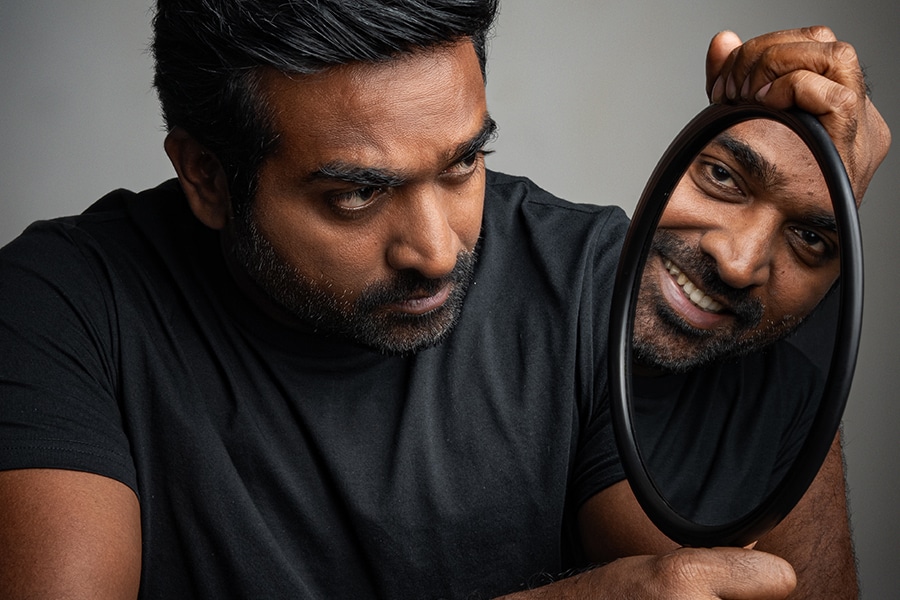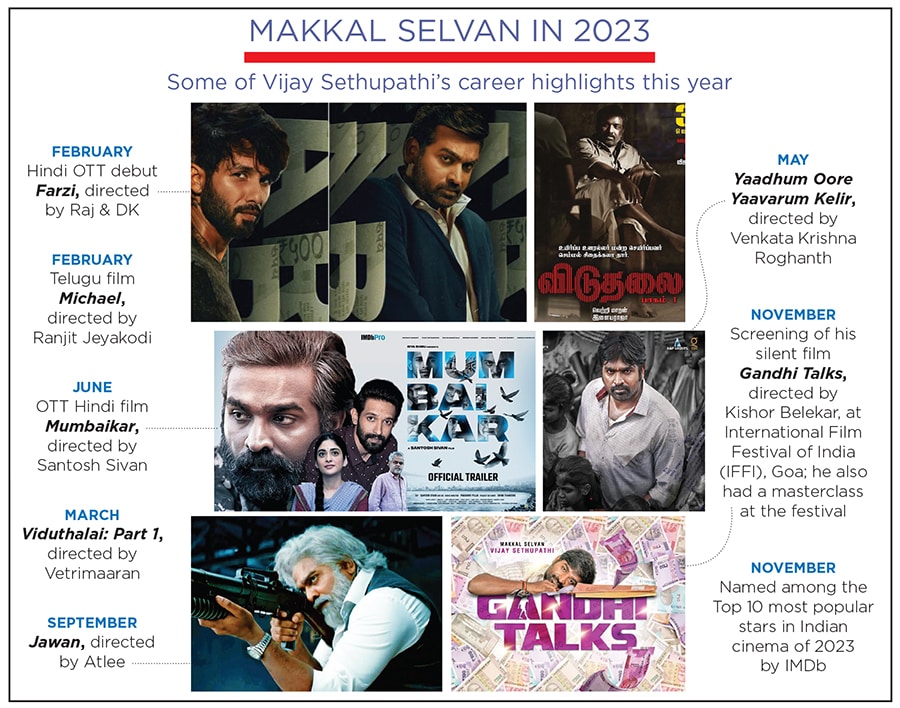
Vijay Sethupathi: Living his dream, his way
He feels fear but is not driven by it, thinks deeply about his characters but is instinctive on screen, and gets a dopamine rush while going from 'action' to 'cut'. Makkal Selvan has had a phenomenal 2023, and he is hungry for more
 It’s very difficult to earn people’s trust, no matter how much you plan. It’s magic, and I’ve earned it:
Vijay Sethupathi, actor Image: Selvaprakash Lakshmanan for Forbes India; Clothing And Styling: Sahana Prabakar; Makeup: Mohideen; Hair: Amulraj
It’s very difficult to earn people’s trust, no matter how much you plan. It’s magic, and I’ve earned it:
Vijay Sethupathi, actor Image: Selvaprakash Lakshmanan for Forbes India; Clothing And Styling: Sahana Prabakar; Makeup: Mohideen; Hair: Amulraj
A conversation with Vijay Sethupathi can go from funny to philosophical in no time.
One moment, he’s telling you how he was naïve enough to think that being photogenic is enough to become as an actor, and the next he talking about how he loves sitting by the car window, watching the world go by as his subconscious mind talks to him about the characters he is playing on screen. What are the character’s motivations? Why is he behaving this way? What excites him and what is he scared of?
If Sethupathi is enthusiastic about playing someone on screen, he has to know everything about that person, even beyond the scope of the script. He calls this the act of “surrendering to his craft” and it’s the only thing that makes him really happy.
We are speaking over Zoom in early November, and the actor has just wrapped up a long day of shoot in Malaysia for director Arumuga Kumar’s yet-untitled project. He’s in a new country, but does not like to travel and see new places. He simply goes from the hotel to the shoot location and back, occasionally breaking the pattern to take walks at night or be driven around the city as he simply stares outside the window, replaying in his head the shots he’s given and the conversations he’s had, all the while conjuring up ideas on how to perform a particular scene better.
This year has been particularly rewarding for the makkal selvan (people’s treasure) of Tamil cinema. A week after our interaction, the actor would be in Goa, delivering a masterclass at the International Film Festival of India (IFFI), where his film Gandhi Talks, helmed by Marathi filmmaker Kishor Belekar, would become the first silent film to be screened at the prestigious festival.














